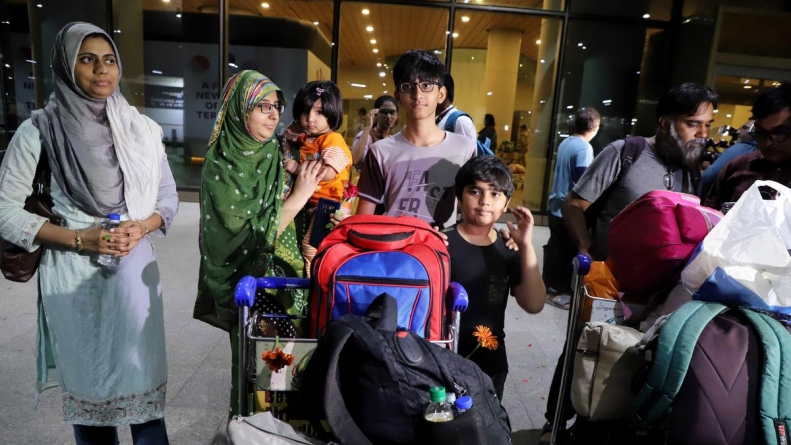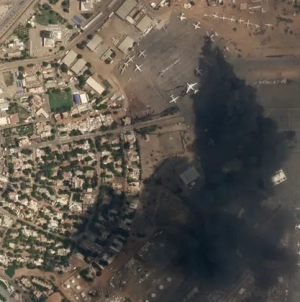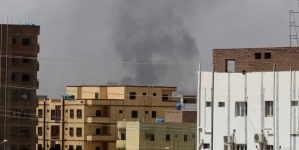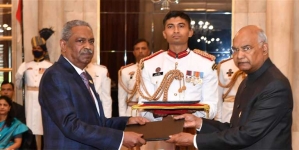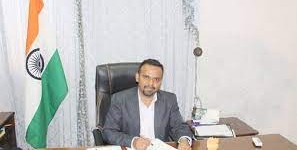-
LONDON: Indian-Origin Teen In UK Gets “Life-Changing” Cancer Treatment - 6 hours ago
-
SILICON VALLEY: All About Pavan Davuluri, New Head Of Microsoft Windows - 6 hours ago
-
LONDON: UK’s India Gate To Commemorate Role Of Indian Soldiers From World Wars - 1 day ago
-
HARARE: Shri Bramha Kumar appointed as the next Ambassador of India to the Republic of Zimbabwe - 2 days ago
-
LONDON: Indian-Origin Principal Wins UK Legal Challenge Over School Prayer Ban - 2 days ago
-
TORONTO: Indian-Origin Doctor Needs ₹ 2 Crore For Legal Fees. Elon Musk Responds - April 22, 2024
-
KINSHASA: India-Democratic Republic of Congo Foreign Office Consultations - April 21, 2024
-
LONDON: UK Court Allows Sale Of Nirav Modi’s Luxury London Apartment - April 21, 2024
-
TEHRAN: Travel advisory for Iran and Israel - April 20, 2024
-
LUXEMBOURG: Shri Saurabh Kumar concurrently accredited as the next Ambassador of India to the Grand Duchy of Luxembourg - April 20, 2024
KHARTOUM: Operation Kaveri, India brings home 754 more citizens from Sudan.
KHARTOUM: India on Friday airlifted 754 of its citizens from Sudan. While 362 passengers reached Bengaluru, the rest arrived here on board a C-17 heavy-lift aircraft of the Indian Air Force (IAF). Minister of State for External Affairs V. Muraleedharan informed that the returnees included several members of the Hakki Pikki tribe of Karnataka who had earlier hit the headlines for being stuck in the conflict.
Meanwhile, Mr. Muraleedharan who is stationed at Jeddah to supervise ‘Operation Kaveri’, announced on Friday evening that the 11th batch of 135 stranded Indians were flown into the Saudi city from Port Sudan by a C-130J of the IAF.
The Saudi port has emerged as the mid-point, where with the cooperation of the Saudi authorities, India has set up a coordination centre. As per official estimates, the total number of Indians in Sudan is around 3,400 with around 1,000 PIOs (Persons of Indian Origin) who have been residing in Sudan for generations. Jawahar Mithani, a veteran Indian businessman who was evacuated on Thursday to Mumbai, said that after Saturday no member of the Gujarati community based in Sudan will remain in Khartoum as last of the buses carrying the Gujarati families will leave by Saturday.
“Gujaratis are a tight-knit community in Sudan and we know each other and as a result we would know if anyone among us has been left behind. But in comparison, there are many Indians who live alone or in small groups and it is not easy to track them and if someone has decided to stay back, then we won’t find out till they inform the embassy or reach out to locals like us,” said Mr. Mithani from his residence in Pune. He said many Indians working for the oil and gas industry stay in distant places and it is not easy to find out about them in the given circumstances.
With Friday’s evacuation, the focus of Operation Kaveri is now shifting to those groups of Indians who live in distant parts of Sudan away from Khartoum. This is likely to be a more challenging part of the operation as many are caught up in places like El Fashir in Darfur which is highly volatile at the moment. Mr. Mithani said the situation is unpredictable as both the warring factions – RSF and the SAF – are continuously gaining and losing ground. He gave the example of the TV station in Omdurman that was captured by RSF on Monday but was taken back by SAF on Tuesday. “After sometime, the SAF again got control of the TV station. Similar is the condition of all roads and bridges as they are continuously shifting from one group to the other,” he added. Such an unstable scenario is likely to make movement on the ground even more difficult.
However, the most important factor that enabled India to evacuate citizens during the last four days was the 72-hour ceasefire that was brokered by the Americans and it remains to be seen if the warring sides agree to extend it.
Dr. Alnoor Ahmad, a Sudanese academic based in Khartoum told The Hindu that heavy bombardment and air raids have resumed in the Sudanese capital starting Friday evening which indicates the ceasefire is not holding. He however noted that during the ceasefire, fighting between the two groups continued sporadically even though the evacuation by foreign countries went ahead.


















